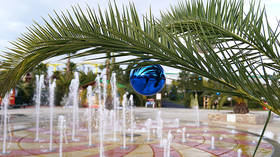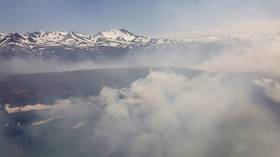Could Sochi be the new Miami? Scientist highlights advantages of global warming for famously chilly Russia

With much of the world worried by climate change, one Russian scientist believes that it might not all be bad news for his homeland. He claims the weather there will become much milder, similar to more temperate climes.
Speaking to Moscow-based TV channel Mir, Vladimir Semyonov, the deputy director of Russia’s Obukhov Institute of Atmospheric Physics explained that global warming is not all doom and gloom.
“For Russia, the changes are not dangerous, perhaps even favorable,” Semyonov explained. “The climate will be like in Warsaw, Hamburg. In Sochi, it will be like in Miami.”
Also on rt.com ‘Do we want the Earth to become like Venus?’: Putin calls for swift & practical action on the ‘huge challenge’ of climate changeWhile looking on the bright side, the scientist also noted that Russia’s northernmost regions may not be so happy with the changing weather. According to Semyonov, ice has been melting at an accelerated rate in the last 20 years. He also noted that the Laptev Sea, a body of water just north of Siberia, is still yet to freeze.
Last month, Russian President Vladimir Putin noted that Russia is particularly vulnerable to the impacts of global warming, as 65% of the country’s territory is made up of permafrost. Any ecological change will have enormous consequences for Russia’s economy and infrastructure.
“It affects pipeline systems, residential districts built on permafrost, and so on,” Putin explained, when speaking to the Valdai Discussion Club. “If as much as 25 percent of the near-surface layers of permafrost, which is about three or four meters, melt by 2100, we will feel the effect very strongly.”
According to the President, Russia’s climate crisis could snowball quickly, as melting permafrost would stimulate methane emissions, and has the potential to spiral out of control.
In June, a Siberian village broke the record for the highest temperature ever recorded inside the Arctic Circle, at 38°C. Later that month, wildfires raged in the far-north of Yakutia, an area usually associated with some of the lowest-ever recorded temperatures.
Think your friends would be interested? Share this story!














